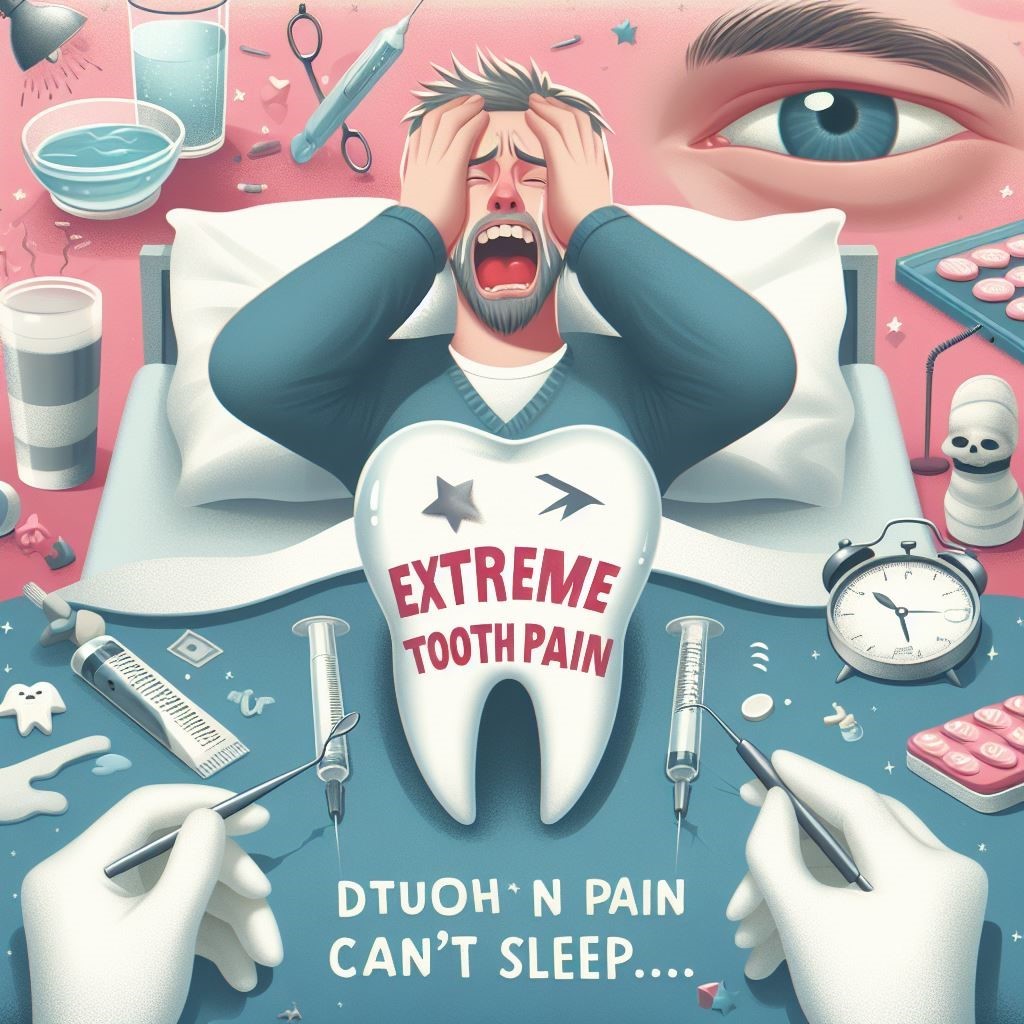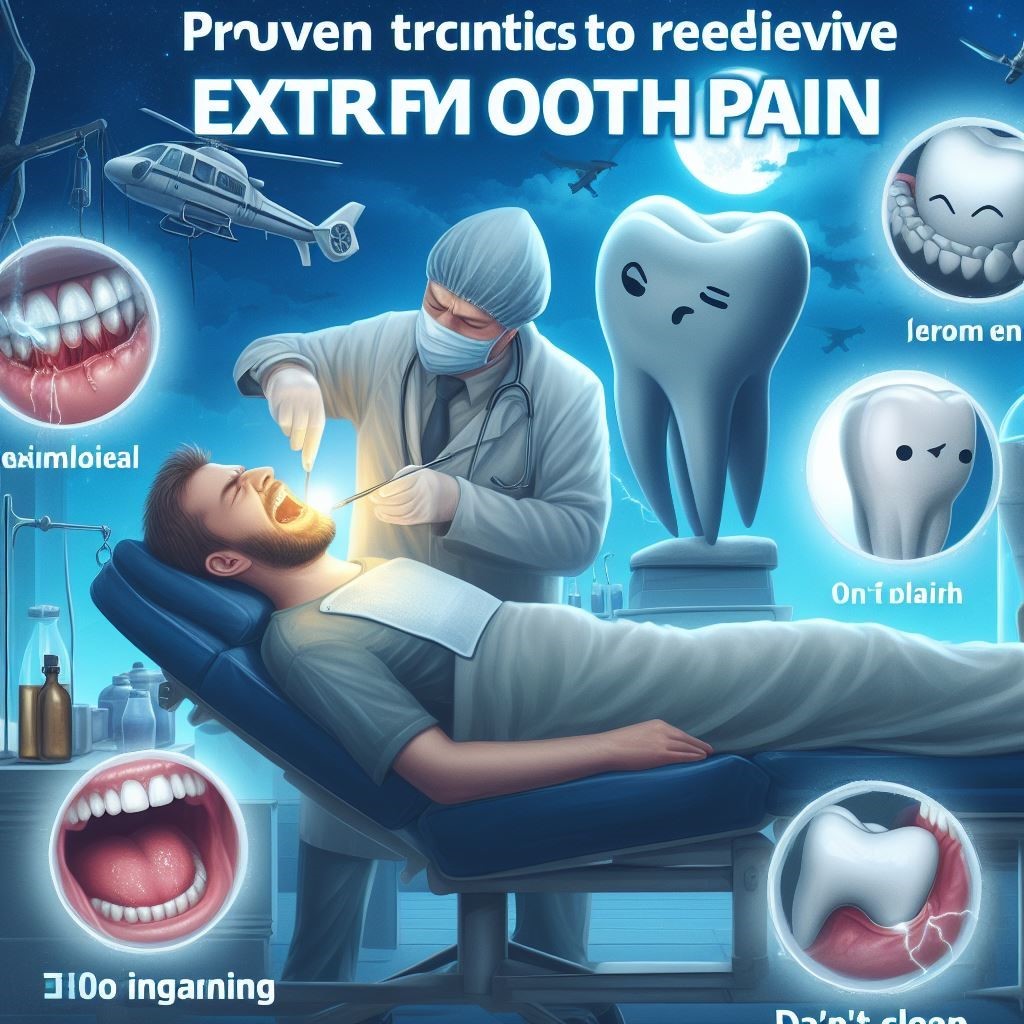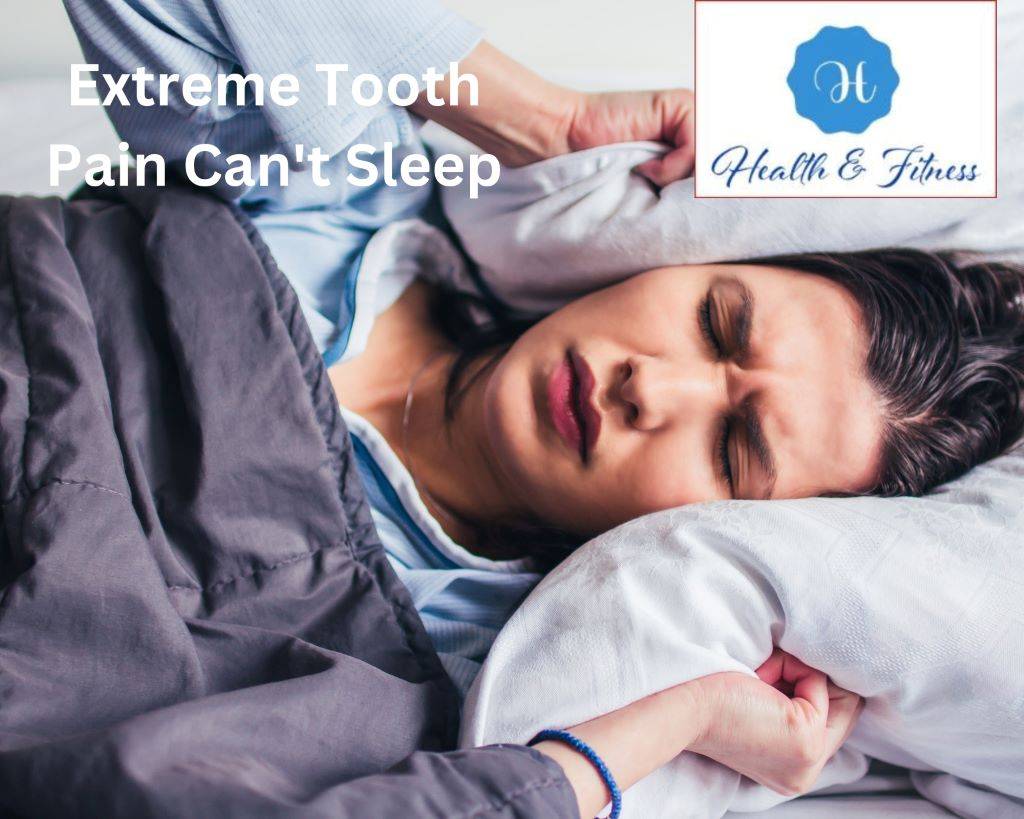Extreme Tooth Pain Can’t Sleep: Sleep Better with These Methods
Suffering from extreme tooth pain and can’t sleep? Discover effective methods to sleep better and ease your discomfort. Relief is just a click away.
Introduction to Extreme Tooth Pain Can’t Sleep
Extreme Tooth Pain Can’t Slee

p? Suffering from extreme tooth pain that keeps you awake at night? Discover effective methods to sleep better and find relief from the agony. Don’t let extreme tooth pain disrupt your sleep any longer. Are you tossing and turning, unable to sleep due to extreme tooth pain? You’re not alone. Toothaches are a common problem that can disrupt your sleep and leave you exhausted and frustrated. In this article, we’ll explore proven techniques to help you regain much-needed rest, despite tooth pain. We’ll also address some frequently asked questions about tooth pain and sleep. So, let’s dive in and help you find relief!
Understanding the Causes of Tooth Pain
Before we dive into the techniques to relieve your Extreme Tooth Pain Can’t Sleep:, it’s important to understand the potential causes. Tooth pain can result from several factors, including:
Tooth decay:
This is the most common cause of tooth pain. Bacteria in your mouth break down the enamel, leading to cavities and sensitivity.
Gum disease:
Gum diseases, such as gingivitis and periodontitis, can lead to tooth and jaw pain.
Abscessed tooth:
An abscessed tooth is a painful infection at the root of the tooth or between the gum and the tooth.
Cracked tooth:
A cracked tooth can cause pain when you bite or are exposed to hot or cold temperatures.
Teeth grinding:
Grinding your teeth at night (bruxism) can cause tooth pain, jaw pain, and headaches.
If your tooth pain is severe and persistent, it’s crucial to visit a dentist to determine the underlying cause and receive appropriate treatment.
Proven Techniques to Relieve Extreme Tooth Pain Can’t Sleep

Now that we’ve discussed the possible causes of tooth pain, let’s explore the techniques you can use to relieve your pain and get better sleep. please use these techniques to prevent Extreme Tooth Pain Can’t Sleep as follow:
1. Over-the-counter pain relievers
Over-the-counter (OTC) pain medicines like ibuprofen or acetaminophen can help ease tooth pain and reduce inflammation.
Follow the recommended dosage instructions and consult your dentist or doctor if unsure which medication to use.
2. Saltwater rinse
A saltwater rinse can help to reduce inflammation and remove any food particles stuck in your teeth. Swish a half-teaspoon of salt with a glass of warm water for 30 seconds before spitting it out. You may do this numerous times a day.
3. Cold compress
Cold compresses alleviate pain and edema. Wrap a bag of ice or frozen vegetables in a thin towel and apply it to the outside of your cheek for 15-20 minutes.
4. Elevate your head
Blood can pool in your head when you lie down, increasing pressure and pain. Try elevating your head with an extra pillow or a wedge pillow to help reduce the pain.
5. Keep your mouth clean.
Tooth discomfort and gum disease may be avoided with regular brushing and flossing. Use soft-bristled toothbrushes, fluoride toothpaste, and daily flossing to keep your teeth healthy and clean.
6. Avoid certain foods and drinks.
Eating hard, crunchy, or acidic foods can exacerbate tooth pain. Stick to soft foods like mashed potatoes, yogurt, and smoothies, and avoid hot or cold drinks that can irritate sensitive teeth.
7. Maintaining Good Oral Hygiene
Good oral hygiene is crucial to alleviate severe tooth pain and forestall additional dental problems. Keep your teeth healthy by brushing twice daily with fluoride toothpaste and using a soft-bristled toothbrush. Remove food and germs from between your teeth by flossing every day. Good oral hygiene is essential to preserving healthy teeth and gums and warding off the progression of dental problems that may lead to excruciating tooth pain.
8. Using a Mouthguard
Wearing a custom-fitted mouthguard at night can provide significant relief if your tooth pain is caused by teeth grinding or clenching (bruxism). A mouthguard acts as a protective barrier, preventing your teeth from grinding against each other and reducing the associated discomfort. Consult your dentist for a personalized recommendation and to have a mouthguard made to fit your mouth properly.
9. Seeking Professional Dental Care
These methods may help, but you need expert dental treatment to treat your significant tooth pain. See your dentist as soon as possible to identify and treat the core cause. Your dentist may recommend treatments such as fillings, root canals, or extractions depending on the severity and nature of the problem.
10. Relaxation Techniques
Extreme tooth pain can cause stress and anxiety, making it even more challenging to fall asleep. Practicing relaxation techniques can help you unwind and promote better sleep. Deep breathing exercises, meditation, calming music, or engaging in activities that help you relax can alleviate stress and distract you from the pain. Incorporate these techniques into your bedtime routine to create a peaceful and soothing environment for sleep.
Stop Tooth Pain Fast?
Tooth pain may ruin your life and cause severe misery. Whether a slow discomfort or an acute, throbbing feeling, alleviation is paramount. You may recover, control, and relieve your tooth pain with these rapid dental pain relief treatments. Learn the best techniques to relieve tooth pain instantly. Cold compresses may reduce pain and swelling. Apply an ice cube wrapped in a tiny towel or a cold compress to your face near the painful tooth for 10–15 minutes. Wait several minutes between applications to avoid skin damage. there are many ways to stop Extreme Tooth Pain Can’t Sleep as follows:
1. Clove Oil
Clove oil has natural analgesic properties and can effectively relieve tooth pain. Apply clove oil to the tooth and surrounding region using a cotton ball. The eugenol compound in clove oil is a natural numbing agent that temporarily relieves tooth pain.
2. Garlic Paste
Garlic is known for its antimicrobial and pain-relieving properties. Create a paste by crushing a garlic clove and mixing it with a pinch of salt. Apply the paste directly to the painful tooth and leave it on for a few minutes before rinsing your mouth thoroughly. Garlic can help reduce inflammation and alleviate tooth pain.
3. Peppermint Tea
Brewing a cup of peppermint tea can provide soothing relief for tooth pain. Peppermint contains menthol, which acts as a natural pain reliever. Swish the tea in your mouth for a few seconds to chill it down, then spit it out. Do this many times a day to feel better temporarily.
4. Rinse with hydrogen peroxide.
Hydrogen peroxide mouthwashes are effective in reducing pain and eliminating bad breath-causing germs. Swish a solution of equal parts water and 3% hydrogen peroxide over your mouth for 30 seconds. Rinse your mouth out with water and spit it out. Take care not to ingest the liquid.
5. Avoiding Trigger Foods and Drinks
Certain foods and drinks can aggravate tooth sensitivity and pain. Avoid consuming hot or cold items, sugary foods and drinks, and acidic beverages like citrus juices. Choose softer, lukewarm foods that are gentle on your teeth and won’t worsen the pain.
6. Gentle Brushing and Flossing
Maintaining good oral hygiene is crucial, even when experiencing tooth pain. However, be gentle while brushing and flossing around the painful area. Use a soft-bristled toothbrush, and be cautious not to pressure the affected tooth excessively. Avoid more discomfort by flossing carefully to eliminate food and plaque.
7. See a Dentist
While these remedies can provide temporary relief, it’s important to remember that they are not permanent solutions. It’s crucial to schedule an appointment with a dentist to diagnose the underlying cause of your tooth pain and receive appropriate treatment. A dentist will address the issue effectively, preventing discomfort and potential complications.
Remember, these solutions will help until you visit a dentist. If your tooth pain persists or worsens, or you experience additional symptoms such as fever or swelling, you must consult a dentist as soon as possible.
How to Prevent Tooth Pain?
Prevention is always better than cure. Here are some tips to help you avoid Extreme Tooth Pain Can’t Sleep at night:
Maintain proper oral hygiene: To maintain a clean and healthy mouth, you should brush your teeth at least twice per day, floss at least once per day, and rinse with mouthwash.
Visit the dentist regularly: Having your teeth checked and cleaned often might help catch problems early on before they cause discomfort.
Avoid sugary and acidic foods: Limit your consumption of sugary and acidic foods and drinks, which can contribute to tooth decay and sensitivity.
Wear a mouthguard: If you grind your teeth at night, consider wearing a mouthguard to protect your teeth and reduce pain.
Frequently Asked Questions (FAQs) about Extreme Tooth Pain Can’t Sleep
Q: How long does tooth pain last?
A: The duration of tooth pain can vary depending on the cause and the treatment. In some cases, pain may subside within a few hours or days, while in others, it may persist until a dentist addresses the underlying issue.
Q: Is it possible for toothache to heal by itself?
A: In some cases, mild tooth pain might go away on its own, especially if it’s caused by sensitivity or temporary irritation. However, if the pain is severe or persists for more than a few days, it’s important to see a dentist to determine the cause and receive appropriate treatment.
Q: Should I go to the emergency room for tooth pain?
A: If you’re experiencing severe tooth pain accompanied by fever, swelling, or difficulty breathing or swallowing, you should seek immediate medical attention. These symptoms could indicate a more serious issue, such as an abscessed tooth or a spreading infection.
Q: Can stress cause tooth pain?
A: Stress can contribute to tooth pain in several ways. It can cause you to clench or grind your teeth (bruxism), leading to tooth, jaw, and headache pain. Additionally, stress can weaken your immune system, making you more susceptible to infections and gum disease.
Q: How can I relieve tooth pain while pregnant?
A: During pregnancy, it’s important to consult your doctor before taking any medications, including over-the-counter pain relievers. Some safe options to relieve tooth pain during pregnancy include using a cold compress, rinsing with warm salt water, and practising good oral hygiene. Be sure to consult your dentist for appropriate treatment and recommendations.
Conclusion about Extreme Tooth Pain Can’t Sleep
Extreme Tooth Pain Can’t Sleep: can rob you of a good night’s sleep, but with the proven techniques outlined in this article, you can regain your rest and relieve the pain. Remember to maintain good oral hygiene, visit your dentist regularly, and address any dental issues promptly to prevent future tooth pain. If your tooth pain persists or worsens, consult a dental professional for a thorough evaluation and treatment.
You can keep your teeth healthy and sleep soundly with the right approach and preventative measures. Sweet dreams!
Reference
Coping with Pain and Sleep Problems” – Sleep Foundation Link:
[https://www.sleepfoundation.org/articles/pain-and-sleep]

Adel Galal is a health and wellness writer with over 30 years of experience studying and writing about health, fitness, nutrition, and healthy living. He is the founder of NextFitLife.com, where he shares practical, evidence-based guidance to support long-term health at any age. Adel’s mission is simple:
to help people make smarter health choices that fit real life, at any age.



